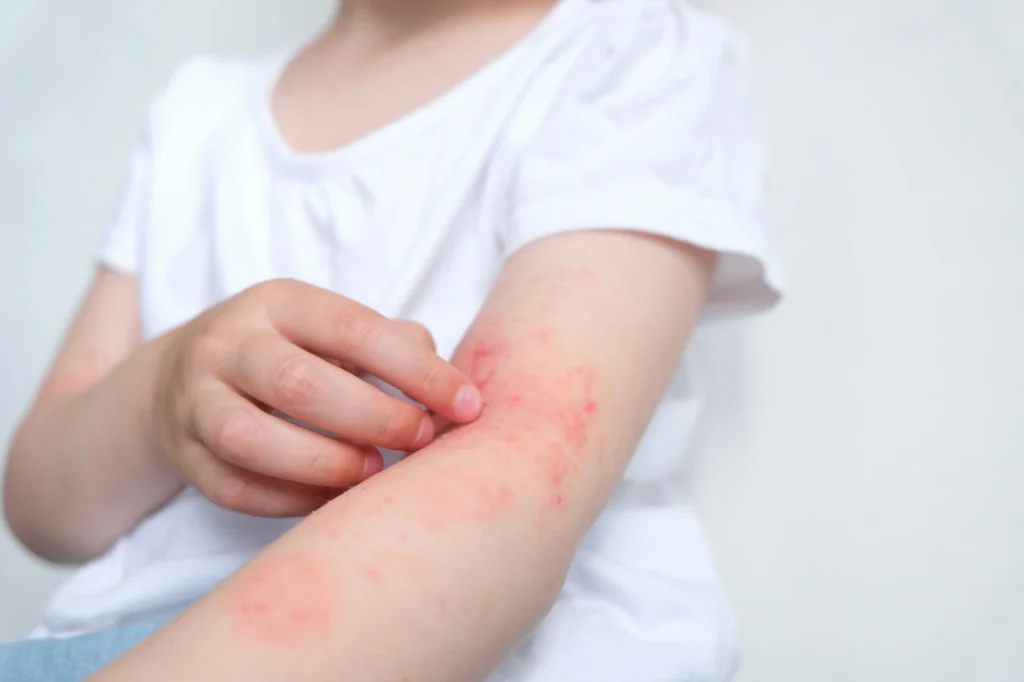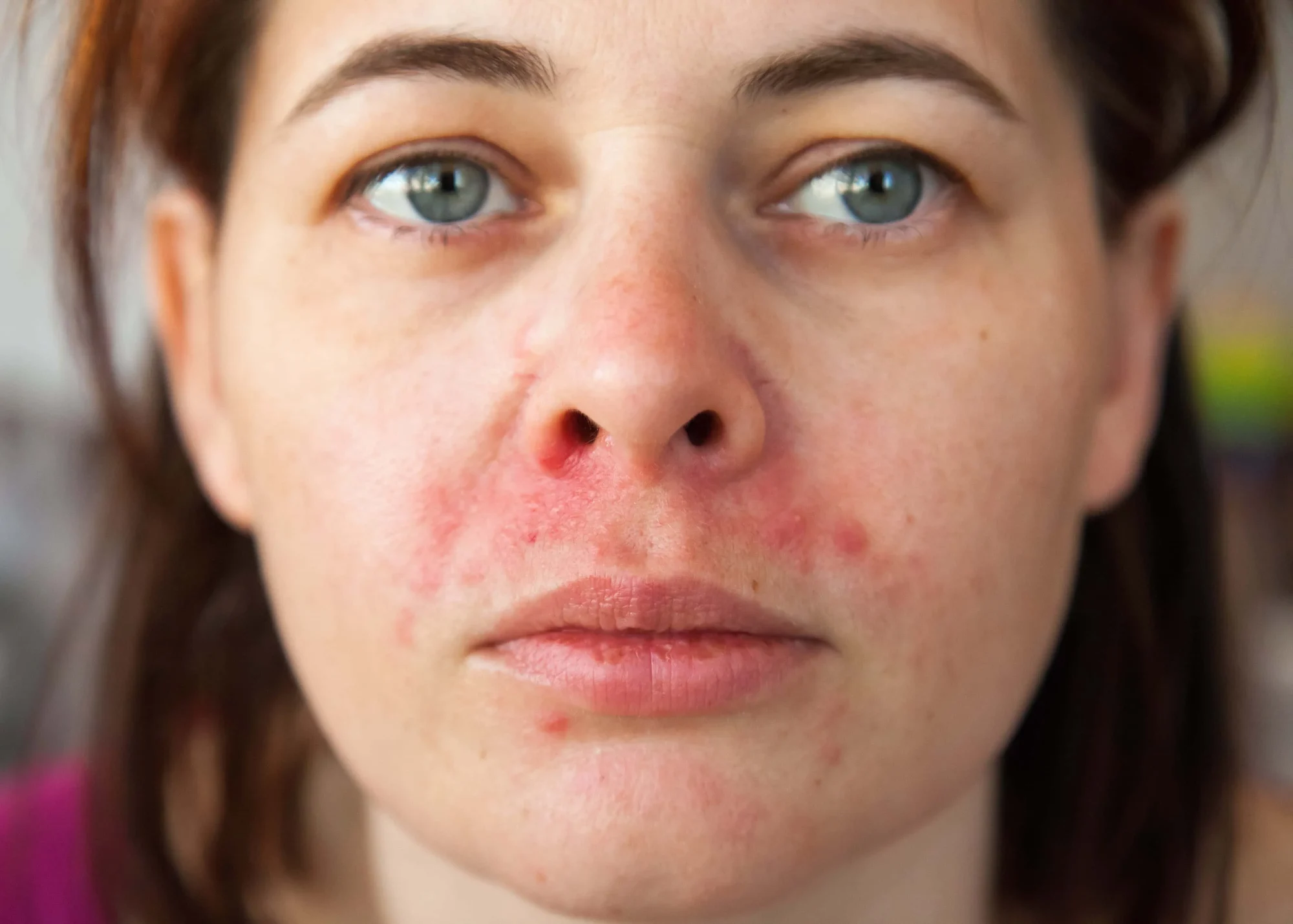Relief for Itchy and Inflamed Skin
Dermatitis is a common skin condition that causes inflammation, redness, and itchiness. With various types, including atopic dermatitis, contact dermatitis, and seborrheic dermatitis, it can range from mild irritation to severe discomfort. At Dermestetics in Gainesville, VA, we offer personalized treatment plans to manage dermatitis effectively, helping restore your skin’s health and comfort.

Expert Providers
Our experienced dermatology team specializes in diagnosing and treating all types of dermatitis. We focus on creating customized care plans that address the root causes of your symptoms. With advanced diagnostics and evidence-based treatments, Dermestetics provides professional care in a supportive environment.


What Sets Our Dermatitis Treatments Apart?
Learn More
Consultation Required?
Yes
Duration of Results
Varies based on treatment and individual response
Sessions Needed
Customized to the condition and treatment plan
Downtime
Minimal to none
What It Treats
Common Types of Dermatitis:
Atopic Dermatitis (Eczema): Chronic condition marked by dry, itchy skin and rashes, often linked to family history or environmental triggers.
Contact Dermatitis: Triggered by exposure to irritants or allergens, causing redness, itching, and sometimes blisters.
Seborrheic Dermatitis: Affects oily areas like the scalp and face, leading to flaky patches and redness.
Dyshidrotic Dermatitis:Characterized by small, itchy blisters on the hands and feet.
Nummular Dermatitis: Presents as coin-shaped spots, typically occurring in colder months.
Stasis Dermatitis: Results from poor circulation, usually in the lower legs, causing redness and scaling
Common Symptoms of Dermatitis
Persistent redness and swelling.
Intense itching, which can worsen with scratching.
Dry, scaly patches that may crack and bleed.
Fluid-filled blisters that ooze or crust.
Thickened or leathery skin in chronic cases.
Burning or stinging sensation in the affected area.
Increased sensitivity to touch in inflamed regions.
Darkened or discolored skin in areas of prolonged irritation.
Small, raised bumps that may become infected.
Peeling or flaking skin, particularly after irritation subsides.
Tenderness or pain in severe cases.
Formation of clear or yellowish fluid pockets in the skin.
Crusting around the edges of affected areas, especially with repeated scratching.
Localized warmth over inflamed skin.

How Our Treatment Process Works
How Our Treatment Process Works
Step 1: Comprehensive Consultation
During your initial visit, our team will:
- Conduct a detailed skin evaluation to determine the type and severity of dermatitis.
- Discuss your symptoms, medical history, and potential triggers like allergens or irritants.
- Recommend further diagnostic tests, such as patch testing, if necessary.
Step 2: Personalized Treatment Plan
Based on your diagnosis, we offer a range of treatment options, including:
- Topical Corticosteroids: Reduce inflammation and alleviate itching.
- Calcineurin Inhibitors: Prescription creams for sensitive areas.
- Moisturizers: Hydrate and restore the skin’s natural barrier.
- Antihistamines: Provide relief for nighttime itching.
- Phototherapy: Uses controlled UV light to reduce inflammation.
- Systemic Immunosuppressants: For severe cases, medications like cyclosporine may be prescribed.
- Biologic Therapies: Advanced options like dupilumab to manage chronic conditions.
Step 3: Follow-Up and Maintenance
To ensure long-term results, we:
- Monitor progress through follow-up visits.
- Provide expert advice on maintaining healthy skin.
- Adjust treatment plans to prevent future flare-ups.
Are You a Candidate for Dermatitis Treatment?
You may benefit from our treatments if you:
- Experience persistent redness, swelling, or itching.
- Have recurring flare-ups that interfere with daily life.
- Seek professional care to manage chronic or severe dermatitis effectively.
Complementary Treatments
Enhance your dermatitis care with additional treatments:
- Wet Wrap Therapy: Improves hydration and soothes inflammation.
- Scalp Hydration Therapy: Ideal for seborrheic dermatitis, relieving discomfort and replenishing moisture.
- Nutritional Counseling: Identify dietary factors that may influence your skin health.
- Stress Management Techniques: Minimize stress-related triggers.
- Advanced Skincare Products: Gentle, dermatologist-recommended options for sensitive skin.
- Steroid Injections: Target localized inflammation in severe cases.
- Professional Exfoliation: Remove dead skin cells and promote healthy skin regeneration.
- Customized Home Care Plans: Step-by-step instructions for maintaining results.
Preventive Tips for Managing Skin Cysts:
- Avoid Known Triggers: Steer clear of irritants or allergens.
- Hydrate Your Skin: Use fragrance-free, dermatologist-approved moisturizers.
- Wear Protective Clothing: Prevent exposure to potential irritants.
- Adopt a Balanced Diet: Include nutrients that support skin health.
- Manage Stress: Practice relaxation techniques or seek professional guidance.
When to See a Dermatologist:
Consider scheduling an appointment if you:
-
- Experience persistent or worsening symptoms despite home treatments.
- Notice signs of infection, such as redness, warmth, or pus.
- Have symptoms that interfere with daily activities or sleep.
Get Started
Take Control of Your Skin Health





